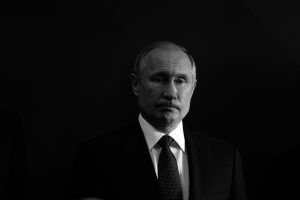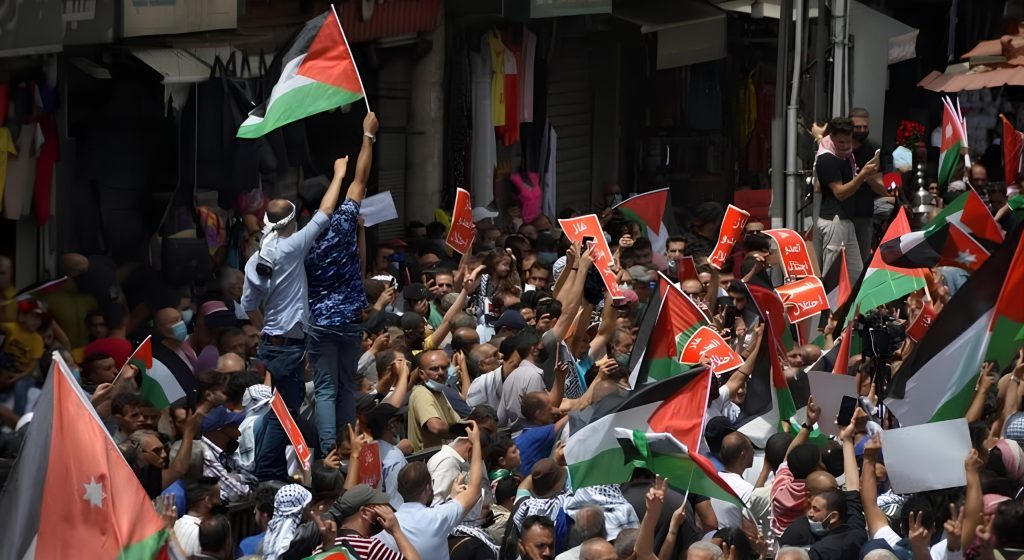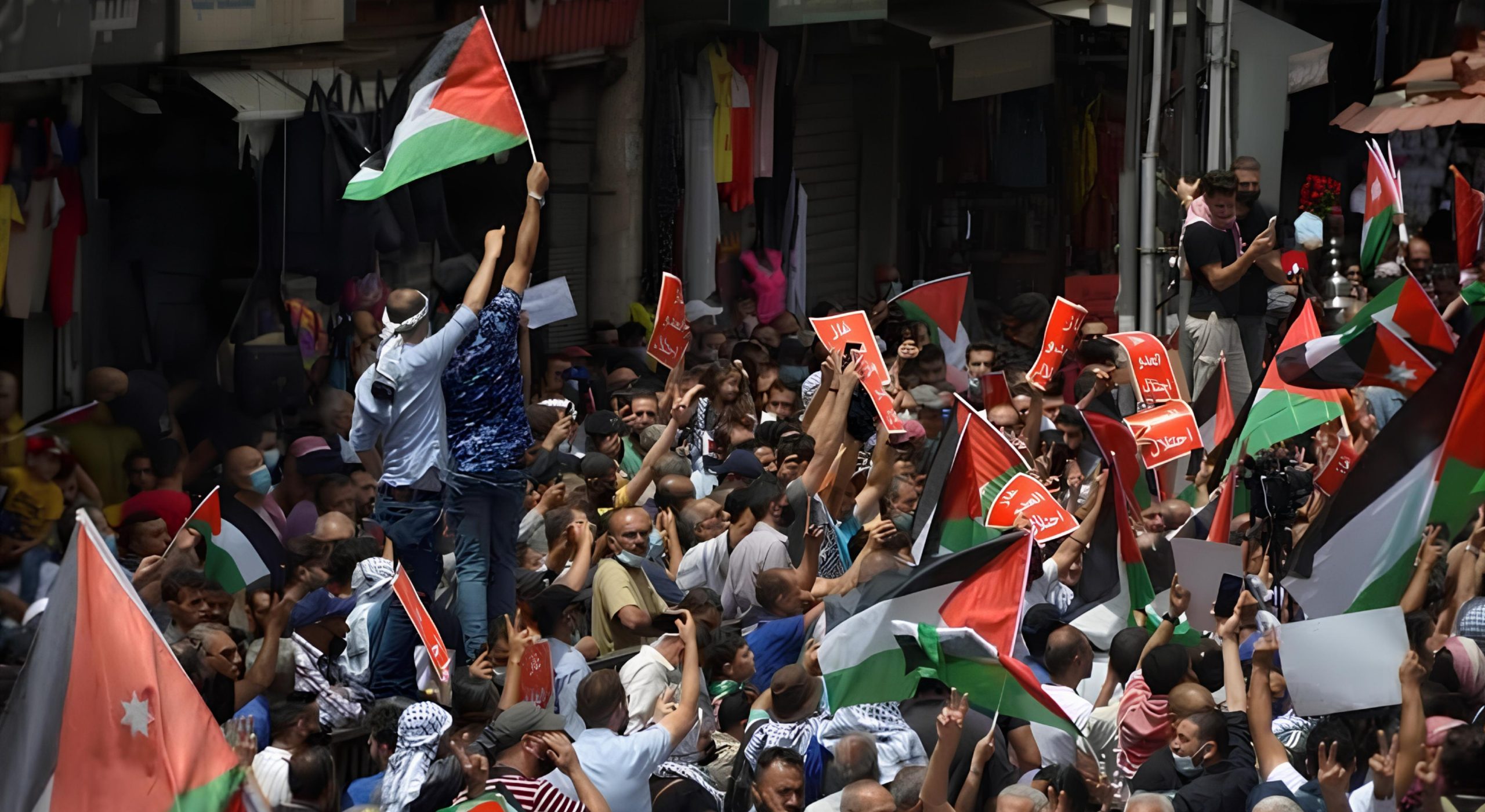
Jordan’s shifting strategic alliances from its historical ties to the Palestinian cause highlight the geopolitics of the region.
January 06, 2024

Colloquially known by the name of Jordan, The Hashemite Kingdom of Jordan, was recently established in 1921 by European colonial powers. Taking into account its Arabic and Islamic affiliation, the official terminology of the country is officially known as a calling that signals the strong Arabic heritage of the country in reference to the Hashemite dynasty that governed in the area since 1921. From a strategic point of view, Jordan is, in fact, an essential component of the Middle Eastern enigma. Nevertheless, the country is viewed by various strategists to proffer a unique modal of diplomatic and military genesis within the Arab peninsula.
While some events amplified its importance per a sum of Middle Eastern persistent conundrums, others signalled that its role was shortened of benefits to serve the national interests at the expense of the interests of the Arabic and Islamic Ummah, “an Arabic word, meaning “people” or “group” or “community” formed based on some common and coherent features”. In opposition to the common conceptualisation of the Palestinian cause, the role of the Hashemite Kingdom of Jordan has been engraved in history thanks to its multi-natured forms of responsiveness in a complex Middle Eastern Milieu. In this context, it is vital to remember that Jordan embarks on the Palestinian enigma as an agent holding an original model of inclusiveness compared to many neighbouring countries in the region.
Just right after the end of the war, multiple ethnically differentiated Jewish immigrants clustered around the Zionist project that had been forwarded to the world by the Jewish political thinker Theodor Herzl. In a quick outlook, the Zionist movement was adopted and funded by the British crown, under the rule of King George VI of Britain, to assist the scattered Jewish population in Europe to reach their proclaimed ‘Promised Land’ in Jerusalem. The pan-Israeli sentiment in the second half of the 20th century has been increasingly normalized in Europe and was synchronized with the rising anti-Semitic calls for the exodus of Jewish descendants around the globe. In this context, the Islamic faith was targeted by major military powers in the world not only as a sacred book but also as any kind of affiliations attached to it, such as the Palestinian population.
The communal tensions on the Palestinian soils touched upon its climax in the late 1940s, but it got two flocks involved in an atrocious war the inception of the British Mandate in 1918 that opposed the Jewish and the Palestinian communities with each other over the issues of the merit for statehood and the regulations of the borders. Consequently, the Arab-Israeli war of 1948 earmarked the first traces of the involvement of Jordan in the Palestinian cause. Even though the first confrontation did not only last from 1948 to 1949, it is deemed of ultimate importance in Middle Eastern studies because it was the main driving force behind the recurrent disfigurement shaping the inter-state relations in the region. In several years ahead, Jordan extended a branch of the olive once again to their Palestinian counterparts. In this regard, the 1967 ‘Six-year War’ was a significant turning point in interstate history, leaving a profound impact on the geopolitics dynamics of the region.
This situation rendered Jordan one of the primal countries to host scattered Palestinian war escapees and begin to play an important role as far as the safety of the Palestinian Diaspora is concerned. The relations were, hitherto, characterized by a certain level of equilibrium until the 1970s. Analyzing the events of 1970 is beyond the scope of research allocated to this article. However, it is worth mentioning as it earmarked a rational re-shuffling of the Jordanian strategic interests as far as the Israeli-Palestinian tensions are concerned. In actuality, the inter-communal agitation was held at a relative stalemate until the outbreak of the events of ‘ Black September’ on the 21st of September 1970. This internal conflict was a pivotal milestone that diverted the traditional alliance between the Jordanian government and Palestinian militant groups as it resulted in the expulsion of the leadership of the Palestinian Liberation Organization (PLO) from Jordanian territories. It marked intensification at the level of bilateral repulsion and discredited the PLO practices to a great extent vis-à-vis international opinion.
Once again, the Jordanian mediation in the Palestinian issue is subject to a long 24-year period of stability and a mixed-feelings approach. As the early 1900s dawned, Jordan’s engagement in the Palestinian liberation movement reached an impasse. Consequently, the country came to conclude that embarking on a normalization process with the Hebrew state is a necessary station to appease the tensions in the region. This initiative has been regarded by international opinion as a significant blow to the cultural and political legacies of Arab Nationalism as per the predicament established by the Egyptian leader Jamal Abdul Nasser’ in the 1950s. In this regard, it is important to note that Jordan is the second country to have normalized diplomatic and economic relations with Israel. Perhaps the events of September 2000 were the most agitated popular movements that urged a political upheaval in Israeli-Arab relations. Notably, the political developments in the early 2000s were characterized by non-uniform empathy schemes among Middle Eastern actors. In order to contextualize the situation, the following paragraph will address, in a concise manner, the origins of the Second Arab intifada.
Most narratives agree that the Second Intifada took place in December 2000 as a natural consequence of the first Palestinian intifada, agreed to be a less intensified confrontation between the PA and the forces of occupation. The rise of armed confrontation was deemed by historians to be too influential on the cause in question from different dimensions. Mostly, it has prevailed in drastic aftermaths of the post-Oslo Accord entente as well as the Camp David peace efforts to inaugurate a period of pacific understanding between the Palestinian Authorities and the Israeli government. As far as the role of Jordan is concerned, the escalation of violence has, thereafter, inverted the expected outcomes when it comes to the juxtaposition of the kingdom to the Palestinian resistance movement. As such, it is possible to trace two grassroots reasons that can explain the emergence of the Second intifada. The increased violation of the pre-established bilateral agreements from Israel’s military occupation coupled with the unfulfilled role expected from the PA earmarked a turndown from the peaceful/diplomatic forms of resistance and placed the responsibility of liberation in the hands of the radical Islamic groups in the region.
With a plethora of ten refugee camps enshrined throughout its territory, more than 2 million registered Palestine refugees live in Jordan, the largest number of Palestine refugees of all UNRWA fields.
The registered refugees are hosted in the following camps: Amman New Camp, Baqa’a Camp, Husn Camp, Irbid Camp, Jabal el-Hussein Camp, Jerash Camp, Marka Camp, Souf Camp, Talbieh Camp, Zarqa Camp. State Policies began to witness significant shifts vis-à-vis the resistance movement from the 1970s onwards.
It is vital to bring forth the fact that the engagement of the Hashemite Kingdom of Jordan has been consistent from 1948 up to the moment in which the ‘PLO’ (Palestine Liberation Organization) was welcomed to exercise its anti-Israeli military operations from Jordanian soil. As a result, this initiative earmarks the transition of Jordan from a ‘Transit’ state to a ‘Resistance’ soil for the Palestinian cause.
The conflict reached its pick in the period between 1970 and 1972; the monarchy faced a direct security-related challenge due to the exponential growth of militarized street guerillas between the Jordanian security forces and the militants of the ‘PLO’ as well as the‘PFLP’(Popular Front for the Liberation of Palestine). This incident is marked in history by the name of ‘Black September’. It was an attempt to crumble the established order under the administration of King Hussein and take over the country. Hitherto, Black September moulded the basis of the engagement of Jordan with the cause and fostered the radical change of the country’s dynamics to engage with the Normalization with Israel in 1994 by the medium of the peace treaty. Violence erupted due to the negative approach of the Palestinian leader vis-à-vis the proclaimed “secret” sympathy that King Hussein maintained with Israeli authority over the years.
As a result, the post-1972 Jordan made a significant shift from the Cause for a good reason. PLO leaders were expelled from Jordan and internal societal tensions were boosted in the public sector. The clash between the two armed forces was wrapped up by signing a ceasefire in the year 1970. Indeed, the tensions drawn out of the Black September in Jordan have engendered a serious fraction in Jordanian-Palestinian relations. One of the most notable aftermaths is the creation of the paramilitary brigade under the labelling of “The Palestinian Black September movement”, a commando faction that broke away from the PLO that assassinated Jordanian Prime Minister Wasif al-Tel in Cairo in 1971.
The article followed a pace of an ascendant aspiration that took into consideration the unusual status of the country in the Middle Eastern question and also tried to smoothly float from the far historical causes to gradually on the Palestinian question in general. As an intricate case of study, the conceptual framework employed to support the historical and geographical grounding has considered three approaches as far as the migration studies are concerned: Local Integration, Resettlement and Repatriation. The emphasis was later focused on displaying the manner through which Jordan has been a key player in pacifying the Arab-Israeli conflict. However, it soon became evident that Jordan’s role transcends the conventional paradigms.
To ensure the solidity of the analysis, two elementary factors have been underscored throughout this analysis. The research opens by studying the historical milestones as well as the diplomatic attributions conducted by the Hashemite Kingdom of Jordan regarding its neighbouring countries. Furthermore, the article has been enriched in terms of the entirety question by demystifying the fogginess of the geopolitical question, a driving factor that determined the position of Jordan. Notwithstanding, the analysis unveils that the flow of assistance of the Hashemite Kingdom of Jordan regarding the Palestinian issue can be depicted as unstable and inconsistent.
As far as the findings of this study are concerned, the article draws to a conclusion the fact that despite its regional strategic importance, Jordan’s power is undeniably curtailed by a complex web of geopolitical considerations. It, hence, underscores the extent to which Jordan’s influence is circumscribed by its external interests, mainly through its bewildering political status compounded with Arabic affiliations and normalizing status. The country’s role is, thus, characterized by an observable oscillation. At the level of the performance related to the refugee’s responsiveness, the analysis came to conclude that the handling of the Palestinian refugee crisis was approached with a mixed-method approach that essentially was decided according to the Kingdom’s relations with Israel.
Hence, the process of local integration and resettlement are the fundamental approaches adopted throughout history that translate an inexorably intertwined view of Palestine with the level of security threats posed by its surrounding nations. Therefore, it becomes evidence to say that Jordan’s contribution is not driven by a pan-Arabic sentiment, but rather a pragmatic orientation grounded in the imperatives of regional stability and security. In summation, the previously delineated key factors in understanding the intricate interplay of politics, strategy, and humanitarian concerns.
A curated seletion of FA’s must-read stories.
Written By: DILARA SAHIN
Written By: RIZWAN RAFI TOGOO
Written By: ERIC SONG
Written By: BATUHAN GUNES
Written By: E. ERDEN
Written By: SHOHREH POOLAB
Written By: ALEYNA TASTAN
Written By: CIHAN KAAN GAZI

Marwene Ben Jennana holds a master’s degree in international relations, and is currently a PhD student in International Relations, specializing in global and regional studies, at Vladivostok State University of Service and Economics in Russia. His research interests include political, economic, and social dynamics within the Mediterranean region, focusing specifically on Tunisian-EU relations as well as the Euro-Mediterranean studies. He has sat for several research internships at institutions such as SETA Foundation, and ANKASAM, to name a few.
Written By: GABRIEL RAMIREZ
Written By: DILARA SAHIN
Written By: DILRUBA YILMAZ
Written By: NILAY CELIK
Written By: ELDANIZ GUSSEINOV
Written By: JOSEF SCHOEFL
Written By: SELCAN BEDIRHANOGLU
Written By: FATIH CEYLAN
FA’s flagship evening newsletter guilding you through the most important world streis ofthe day. Delivered weekdays.
